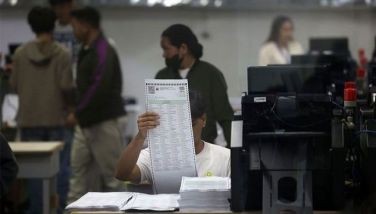‘PCSO not yet cleared on stamp tax’
MANILA, Philippines - The Bureau of Internal Revenue has not cleared the Philippine Charity Sweepstakes Office (PCSO) of any liability with respect to unsettled documentary stamp taxes from small town lottery operations.
“In the first place, PCSO is not exempt from DST (documentary stamp). As far as the BIR is concerned, we can and may run after the PCSO,” BIR commissioner Kim Henares said.
The PCSO owes the government close to P3 billion from 2007 to 2009.
The unpaid taxes cover, among others, the five percent tax on the total prize fund, 10-percent DST on sweepstakes and lotto tickets, withholding tax on compensation and tax on miscellaneous income.
Henares said the payment of DST is the sole responsibility of private companies operating small town lottery (STL) under a contract with the PCSO.
“We have not cleared them of any liability. The DST is the responsibility of the PCSO, and they should pay it,” Henares said.
STL operators have not been charged any documentary stamp tax since they began operations in 2006.
Under the National Internal Revenue Code, a 10-centavo documentary stamp tax is charged for every P1 bet in jai alai, horse race, online lottery or lotto and other authorized numbers games.
Henares said the BIR is conducting a separate audit on ticket sales of STL operators.
Based on the PCSO charter, 55 percent of the revenues collected from STL go to the prize fund for the games, 30 percent for the charity fund and 15 percent for the operating fund since the state-run charity institution does not get any budget from the government.
STL operators, on the other hand, insisted that the existing rules and regulations agreed upon with the PCSO do not require them to pay DST.
According to the operators, they are only required to remit a portion of their sales to PCSO, congressional districts in the area of operations, local government units and the Philippine National Police headquarters and local stations.
STL, which involves betting on two-number combinations, was conceptualized in 2005 with the goal of stamping out jueteng and other illegal numbers games.
Earlier reports said jueteng operators have been using the STL as a front for illegal gambling.
An earlier investigation showed that franchises for STL have been awarded to the same people operating jueteng joints.
- Latest
- Trending






























